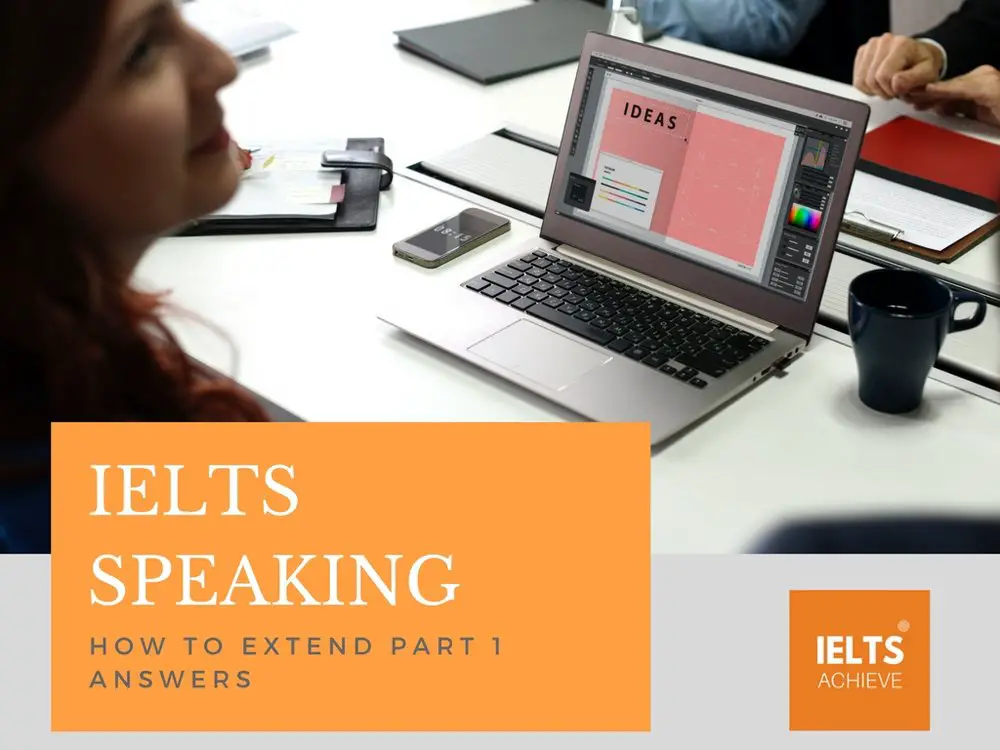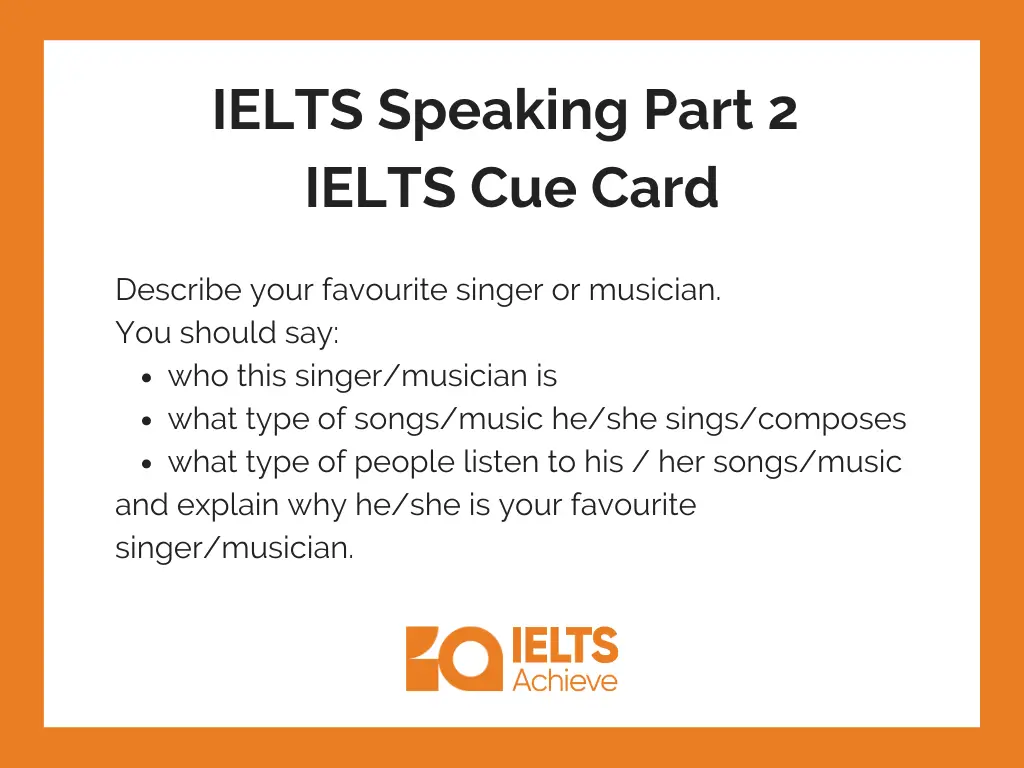
This post will look at how to extend your part 1 answers.
In part 1 the examiner will ask you about familiar topics, like your home, hometown, hobbies and work. The answers you give should be honest and show the examiner your ability to use English well.
When giving your answers, try to make sure that they are not too short – for example, if the examiner asks you ‘What is your favourite TV show?’, saying ‘I really like Peaky Blinders’ is too short.
You can expand your answer by adding more detail of what it is about, and why you like it so much for example; ‘I really like the BBC drama Peaky Blinders, it has an excellent cast and the writing keeps me interested in the story. There is lots of action, as the story is centred on a ganster family in 1920’s Birmingham, who are up to no good!’.
The answers in part 1 should not be too long either, talking for 2 minutes or more is far too long, parts 2 and 3 will allow you to speak for a longer time and go into more detail.
You should aim to use more than one clause when you give your answers, for example;
Q: Do you work or study?
A: I work at the moment but I continue my studies at the same time. I continue to learn through courses and gain new qualifications every year, this means my knowledge is always up to date.
Take a look at the ways that you can extend your answers below, in the aim of getting you a higher score! >>
Be Honest
When answering the questions, try to be as honest as possible, telling the examiner your thoughts, feeling and opinions, for example;
Q: Do you think vacations are becoming more and more important?
A: Yes, I think that many people are working longer hours and have more stress than ever placed upon them. taking a break is necessary to unwind and recharge so that they can let go of the stress and focus on their own well-being.
Give Details (Contrast)
You can extend your answers by giving contrasting details, using words like – but, however, although, even though, while, whereas.. etc. For example;
Q: Do you use the Internet for your studies?
A: Yes, I do research online, reading articles from trusted resources. However, there is a lot of information out there, so you need to be able to separate the good from the bad.
You can also add more details into your answer by using the words with, and, another, also, next – for example;
Q: Do you enjoy your work?
A: Yes I do, it is always exciting to meet new students and to help them on their learning journey. Writing is also a fun way to let my imagination free and to research topics that interest me, like interior design, architecture and fine art.
You may also be asked to contrast an opinion or opinions of others where these words – but, however, although, even though, while, whereas.. etc. would also be appropriate to use. For example;
Q: What do you like/dislike about your job?
A: The thing I like most about my job is being able to help people achieve their goals. I also like the flexibility, as I am responsible for my own schedule. However, I don’t like the number of hours I sometimes work, but it can be necessary.
Compare
You can make comparisons thinking about things you used to enjoy or used to do but now enjoy/do something different. You can use words like – similarly, likewise, also, like, same as, similar to… For example;
Q: What sports do you like? (Why?)
A: I used to enjoy classes like Zumba and body combat but now really enjoy swimming and running. Swimming and running are great ways to stay fit as they allow me to experience nature, as well as exercise.
Give a reason why
Expand your answers with reasons…..why you do or do not like something etc (depending on what you are being asked). You can use words like – for, because, since, as. For example;
Q: Why are vacations important to you?
A: Because they are much needed during certain times of the year, for example when the weather becomes too hot to bear or I feel as though I need a break from work. They help me to relax and de-stress from everything.
Q: What’s your favourite weather? (Why?)
A: I prefer warm days at around 24/25 degrees with clear blue skies and the sun, since this is good for walking my dog and to enjoy the outdoors without being too uncomfortable.
Think about the future
When the examiner asks you a question, think about the future – using the future tense and what you would like to do in the future. You can use will be/going to or in a hypothetical situation you can use would or could. For example;
Q: What will you do in the future? (work related)
A: In the future, I would like to be able to expand my teaching responsibilities and to have more student groups. I also want to write a book, a fiction novel or two!
Q: If you could take a vacation anywhere in the world, where would you go? Why? (travel)
A: I would like to visit a pretty place with snow, lots and lots of snow, somewhere like Canada or maybe even in the mountains in Greece during the winter months. In the future, I would like to go skiing, try snowboarding and stay in a well-decorated log cabin, with a large real fireplace.
Give examples
Support your answers with examples from your life or past experiences. It is much better to do this then try to make something up, as you will be more confident giving an example that you have experienced. You can use – for example, for instance, such as, including. For example;
Q: How often do you buy something in a shop?
A: That depends on what it is, for example, I will go the shop every day to buy freshly baked bread. For other groceries, it may be once a week and for other items, such as clothes it will be less often.
Q: Does the weather ever affect what you do?
A: Yes, plans change according to the weather, for instance, if there is a heavy downpour I will not be able to walk my dog or to go shopping in town.
Regularity
You can extend your answers by using words to show how often you do something. Use words like – never, often, sometimes, all the time, usually. For example;
Q: How often do you swim?
A: I usually go swimming every day or at least three times per week. This allows me to do some exercise in the water which is good for my overall health.
Practice
Practice as much as you can with a partner or your teacher, looking at past questions and working on your overall conversation. The best student answers are given naturally, explaining, giving detail and being honest.
Think about the structures you need to use and the words that will help you to connect your information together. Take a look through the practice question and answers in this section to get some ideas.
Don’t overcomplicate it by thinking of ‘complex structures’ and grammar that you need to use when you are answering.
Join our private Facebook Group and find people to start practising with! Sign up for our newsletter to receive the link, then join the group to meet other IELTS students.
We hope you found this post useful in helping you to study for the IELTS Test. If you have any questions please let us know in the comments below or on the Facebook page.
The best way to keep up to date with posts like this is to like us on Facebook, then follow us on Instagram and Pinterest.
If you need help preparing for the IELTS Test, join the IELTS Achieve Academy and see how we can assist you to achieve your desired band score. We offer an essay correction service, mock exams and online courses.

